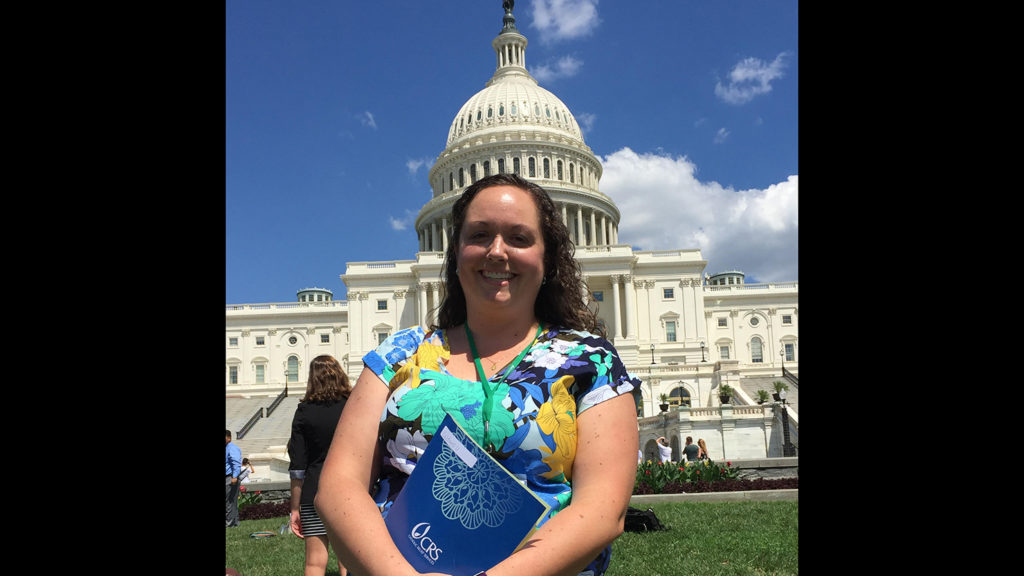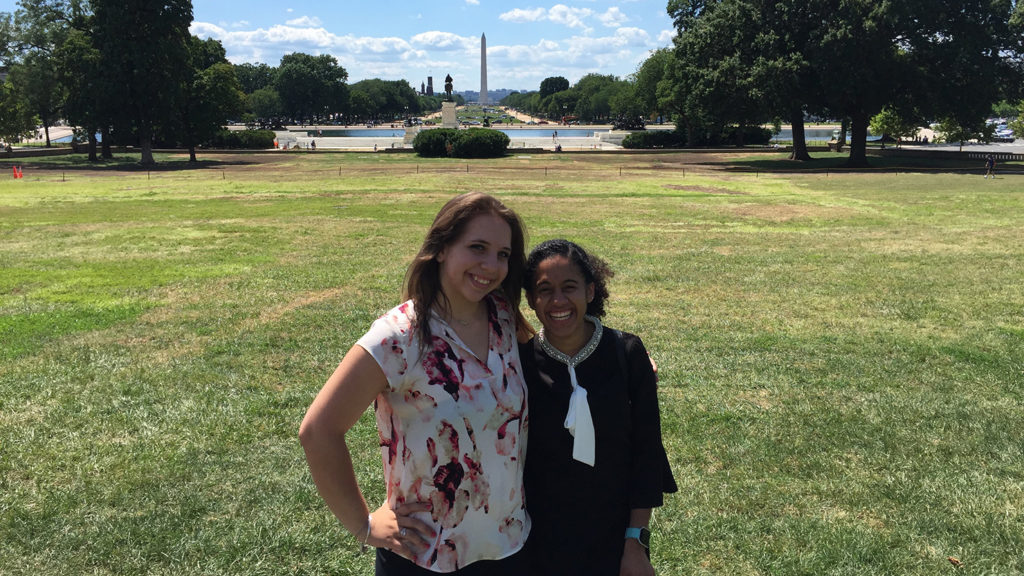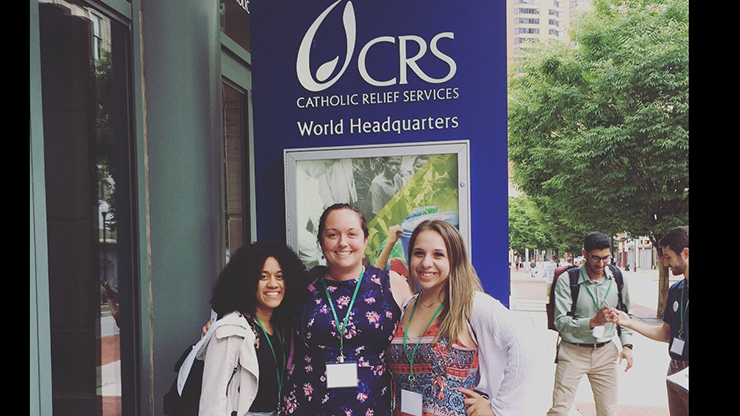Caldwell University
July 24, 2018
Students Attend Catholic Relief Services Summit and Advocate on Capitol Hill
Caldwell, N.J., July 24, 2018 – “There is so much going on around the world that needs our attention,” said Brittany Guale after participating in the Student Ambassadors Leaders Together summit in Baltimore and Washington, D.C. in July.
Guale and student Yaskayra Gonzalez, who also attended the Catholic Relief Services conference, are energized to take what they learned and to advocate policy change on international humanitarian issues such as global migration and hunger. “We could get caught up in our own little worlds and forget that there are global issues we should be addressing to help our brothers and sisters in need,” said Guale.
Guale and Gonzalez along with Director of Campus Ministry Colleen O’Brien joined representatives of schools across the United States for three days to learn about leadership on behalf of the poor and how to take action on their campuses. They attended seminars at Loyola University of Maryland in Baltimore and the Catholic Relief Services headquarters office in Baltimore the first two days. On day three, July 18, they took part in Advocacy Wednesday, visiting lawmakers on Capitol Hill including New Jersey’s congressional leaders. The students asked members of Congress to set aside 1 percent of the federal budget for international assistance so programs addressing poverty and hunger can continue.
“Actually going to Capitol Hill and advocating was a chance to get our message out there and let our voices be heard for those who do not have that voice to ask for change themselves,” said Guale.
For meals, they ate food made with some of the recipes from the Catholic Relief Services Rice Bowl, a Lenten prayer and almsgiving initiative to benefit the poor.
O’Brien was interested in learning about an irrigation program that helped farmers in Malawi. “This is a more difficult form of farming in the beginning, but it has lasting benefits for people in areas of high drought, so for these farmers and their village, once the drought season came, there was water available for their plants that had been stored up through the irrigation farming,” said O’Brien. With irrigation farming, they had enough food to eat and some to sell. She explained that this allowed them to maintain their livelihoods so they would not be forced from their homes and become internally displaced persons.
The students are looking forward to bringing the energy from their experience to the Caldwell Catholic Relief Services Student Ambassador club during the new academic year.








